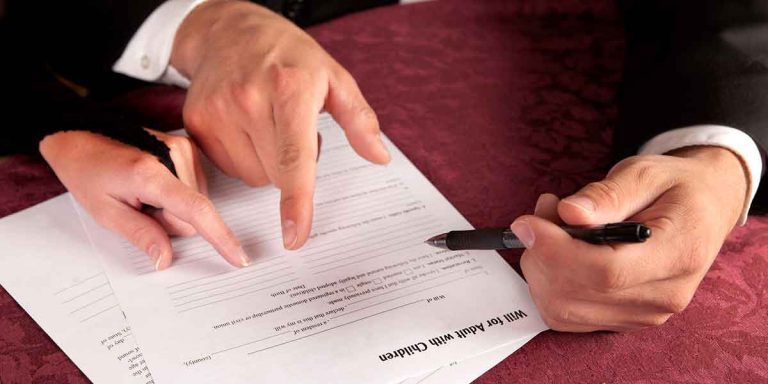While no one wants to think or talk about mortality, however, one wants to secure their family and estate after their demise. While most people are aware of creating a last will in estate planning, it is mandatory to choose the correct person to manage your estate in your absence. An executor is a fiduciary who, upon your death, is responsible for managing every aspect of your estate. The person, also called a personal representative, has a lot of responsibilities like calculating the assets and handling the debts and distributing the remaining property to the heirs.
Estate Planning-
Reasons why you must have an executor appointed to handle your assets after your demise are as mentioned below:
1. Estate is opened: In case you have appointed an executor then he/she will be responsible to open your estate in the probate by filing the paperwork and representing your estate as executors. He/she will also notify the parties including the creditors about your demise, so they can claim against your estate. It is the duty of the executor to identify such creditors and inform them in clear words through notification so that lawsuits can be avoided. In case of absence of a will, the court will appoint an executor which will not be of your choice and costly as well.
2. Asset collection: The executor is responsible to list out all your assets’ inventory including property, investments, accounts like saving or retirement, etc. Apart from these personal effects are also listed like antiques, collections, etc. to be presented in the court for review, which in all is a time-consuming process. All such information needs to be precise and complete so that there would be a proper dispense of assets.
3. Estate management: The executor is also required to pay your outstanding bills like credit card or utility bills after your demise. Also, the executor must ensure the collection of funds owned by you. Apart from these, in case of a business, the executor needs to manage it until it is handed over to the inheritors which include settlement of salary, funds, etc. for which the executor is authorized to buy or sell some assets.
4. Tax payment: The executor needs to calculate the due taxes of the deceased on their own or by taking help from an accountant or an attorney and then filing the tax return. This is to ensure that there would be no income tax due and to receive refunds, if any.
5. Estate closure: In this process, the executor needs to present to the probate that all creditors have been informed and all the due bills and taxes have been paid.
6. Asset distribution: After settling all the debts, the executor’s final duty is to dispense the remaining estate among the inheritors according to the deceased’s last will which might include either to providing the assets to the heirs or to fund a trust for minors or dependents like disable family member or older folks. Apart from this the executor needs to explain the distribution to the heirs to avoid any kind of dispute or lawsuit over the will, which in turn will make the distribution of the assets even longer.
How to pick executor for your Estate?
An executor’s responsibilities generally last for at least two years or even more and end when all liabilities and expenses are satisfied and assets of the estate are distributed. All such problems can be avoided by someone who can take on responsibility and fulfil the task smoothly. Below are some factors that you need to consider while choosing an executor.
1. Trust: As the executor is responsible for your investments and debts, he/she will have access to your account and checkbox. Hence, you must ensure that the person is honest, trustworthy, responsible reliable and most importantly willing to take the responsibility. If you don’t find anyone competent for this role among your friends, family or close relatives then you can opt for attorney or professionals for this role who will be hired for a fee.
2. Alternate executor: People often forget to review and update their will regularly hence you must ensure that there would be at least 2 executors so that in case anyone is unable or unwilling to take on the responsibility, then you must have an alternate executor to do that.
3. Age: You must ensure that the appointed executor is young enough, who might be similar to or below your age so that he/she would be there at the time of your demise to take on the responsibility.
As it sounds easy to be an executor, it is totally opposite as the executor has to deal with the probate process and fulfil lots of responsibilities to be accomplished in coordination with tax and legal professionals. Hence, you must ensure that the person(s) selected by you as an executor must be intelligent, mature and dependable.



